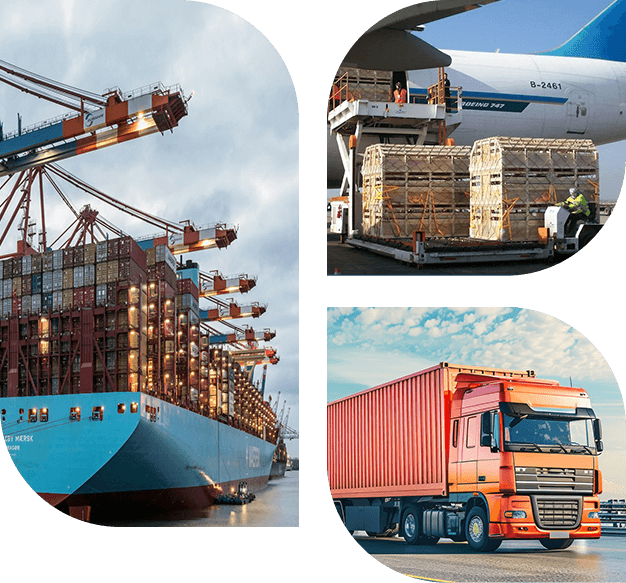In an increasingly mobile world, the need for efficient and reliable car shipping services has surged. Whether relocating for a job, purchasing a vehicle from a distant seller, or simply needing to transport a classic car, understanding how car shipping companies operate can save you time, money, and stress. This article delves into the intricate workings of car shipping companies, exploring their processes, pricing structures, and the factors that influence their operations.
Understanding the Car Shipping Process
Car shipping companies specialize in transporting vehicles from one location to another, often across long distances. The process typically involves several key steps:
- Initial Inquiry and Quotation: The journey begins when a customer contacts a car shipping company for a quote. Customers provide essential details such as the vehicle type, pickup and delivery locations, and desired shipping dates. Companies often use this information to generate an initial estimate, which can vary based on several factors.
- Booking and Documentation: Once the customer agrees to the quote, the next step is to book the shipment. This involves filling out necessary paperwork, including a Bill of Lading, which serves as a contract between the shipper and the carrier. This document outlines the vehicle's condition, shipping terms, and any special instructions.
- Vehicle Inspection: Before loading the vehicle onto a transport truck, a thorough inspection is conducted. This step is crucial for documenting the vehicle's condition and ensuring that any pre-existing damage is noted. Both the customer and the shipping company typically sign off on this inspection report.
- Transport Method Selection: Car shipping companies offer various transport methods, primarily open and enclosed transport. Open transport is more common and cost-effective, where vehicles are loaded onto open trailers. Enclosed transport, while more expensive, provides additional protection from the elements and is often preferred for luxury or classic cars.
- Loading and Transport: Once the vehicle is ready, it is loaded onto the transport vehicle. The shipping company then coordinates the logistics of the journey, including route planning and scheduling. This phase can take anywhere from a few days to several weeks, depending on the distance and chosen transport method.
- Delivery and Final Inspection: Upon arrival at the destination, the vehicle undergoes a final inspection to ensure it has arrived in the same condition as when it was picked up. The customer is then required to sign the Bill of Lading, confirming receipt of the vehicle.
Factors Influencing Car Shipping Costs
Understanding the factors that influence car shipping costs can help customers make informed decisions. Here are some key elements:
- Distance: The most significant factor affecting shipping costs is the distance between the pickup and delivery locations. Longer distances typically result in higher costs.
- Transport Method: As mentioned earlier, the choice between open and enclosed transport significantly impacts pricing. Enclosed transport is generally more expensive due to the added protection and lower capacity.
- Vehicle Size and Weight: Larger and heavier vehicles require more space and fuel, which can increase shipping costs. Additionally, specialty vehicles may incur extra fees due to their unique handling requirements.
- Seasonality: Car shipping rates can fluctuate based on the time of year. For instance, peak moving seasons (typically summer months) may see increased demand and, consequently, higher prices.
- Additional Services: Services such as expedited shipping, door-to-door delivery, and insurance coverage can also add to the overall cost. Customers should weigh the benefits of these services against their budget.
The Role of Technology in Car Shipping
In recent years, technology has transformed the car shipping industry. Companies now utilize advanced software and tracking systems to streamline operations and enhance customer experience. Here are some technological advancements that have made a significant impact:
- Online Quoting and Booking: Many car shipping companies offer online platforms where customers can obtain quotes and book shipments easily. This convenience allows for quick comparisons and informed decision-making.
- GPS Tracking: Real-time GPS tracking enables customers to monitor their vehicle's journey, providing peace of mind and transparency throughout the shipping process.
- Automated Communication: Automated notifications and updates keep customers informed about their shipment status, reducing the need for constant inquiries.
Conclusion
Understanding how car shipping companies operate is essential for anyone considering vehicle transportation. From the initial inquiry to the final delivery, each step in the process is designed to ensure a smooth and efficient experience. By being aware of the factors that influence costs and the technological advancements shaping the industry, customers can make informed decisions that best suit their needs. Whether you're shipping a family car or a prized classic, knowing what to expect can turn a potentially stressful experience into a seamless transition.




